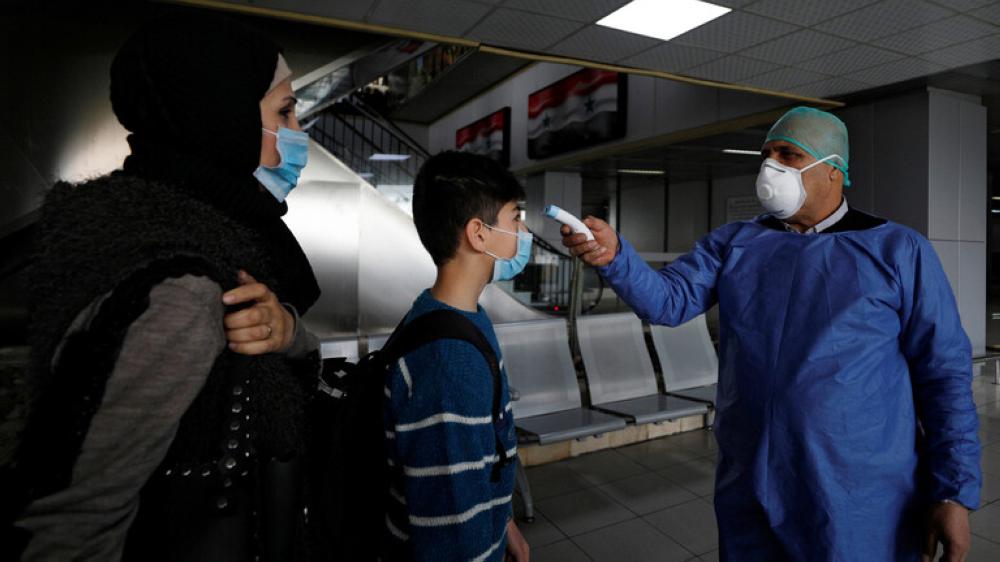New measures have been taken by the Syrian opposition and the Assad regime in their areas of influence to tackle the coronavirus.
The measures taken by the opposition included closing border crossings with the Assad regime and the Syrian Democratic Forces (SDF), in addition to stopping schools and postponing the standard test date for primary and secondary students.
The head of the Syrian Interim Government, Abdul Rahman Mustafa, announced that the Ministry of Health had equipped three quarantine centers this week in Salqin in the Idleb countryside, Dar Azza in the western Aleppo countryside, and al-Bab in the eastern Aleppo countryside.
Mustafa said the each center had a capacity of 20 beds, and that tents had been set up at border crossings to monitor suspicious cases. He said that the procedures are being carried out in cooperation with the World Health Organization (WHO) and the Turkish Ministry of Health.
The World Health Organization had warned of the virus spreading in Syria, and WHO spokesman, Hedinn Halldorsson, said, “Syria’s health systems are fragile, and may not have the ability to detect a pandemic.”
Halldorsson added that the organization had to help those affected from across the border because it was unable to provide services from territory controlled by Assad’s forces.
He said health workers were being trained in Idleb, and laboratories equipped in Ankara to diagnose the virus safely.
The Assad regime: procedures without acknowledgement
Meanwhile the Assad regime took new measures despite insisting there are no infections in its areas.
Regime President Bashar al-Assad issued a decree postponing parliamentary elections until May 20, 2020, after they had been scheduled for Apr. 13, 2020.
This coincided with a fatwa by the so-called Jurisprudential Scientific Council in the regime’s Ministry of Endowments to suspend Friday prayers, sermons, and congregational prayers in mosques, from Sunday until Apr. 4, 2020, saying it would be sufficient for the call to prayer to be issued for the five daily prayers.
The council also suspended religious lessons, group meetings in mosques and its wedding and condolences halls.
Minister of Health Nizar Yaziji meanwhile continued to deny that there had been any cases of the coronavirus in regime areas, saying that all samples analyzed for suspected cases are negative.
Yaziji said procedures had been tightened at border crossings, sea and land ports and airports, to ensure the health of those coming into Syria.
He said passengers coming from Iraq had been quarantined in the Duwair area of the Damascus countryside—16 Syrian passengers and crew, according to him.
In a press conference, the minister took the opportunity to call for the economic blockade imposed on the regime by the United States and a number of Western countries to be lifted.
Yaziji said lifting the sanctions would help the health sector import essential supplies.
Although the virus has spread to most Arab countries and neighboring countries, especially Lebanon and Jordan, the Assad regime has not yet announced any cases.
Activists in recent days have said there have been casualties in Syria, but the Assad regime says these are negative cases.
The Syrian Observatory for Human Rights has quoted medical sources as saying that the coronavirus has spread mainly in the governorates of Damascus, Tartous, Lattakia and Homs, and that there have been many infections, some of whom have died, with others put in quarantine.
A medical source from the Homs Health Directorate told Alsouria Net that since the beginning of February quarantine centers had been built in the city of Palmyra in the eastern countryside.
The medical source added that the quarantine center construction coincided with a statement clarifying that the medical response to the coronavirus would be limited to transporting patients to the quarantine centers, without procedures for medical interventions in the initial infection stages.
According to the latest World Health Organization statistics, the virus has spread to 129 countries, and so far has infected 143,320 people worldwide, and 5,388 cases have died worldwide.
This article was translated and edited by The Syrian Observer. The Syrian Observer has not verified the content of this story. Responsibility for the information and views set out in this article lies entirely with the author.


